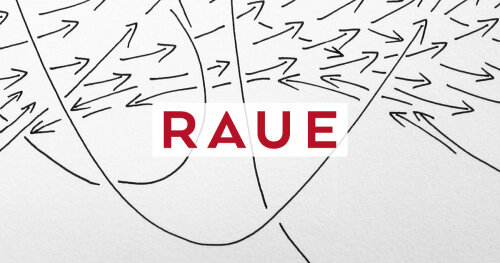Best Tax Increment Financing Lawyers in Berlin
Share your needs with us, get contacted by law firms.
Free. Takes 2 min.
List of the best lawyers in Berlin, Germany
About Tax Increment Financing Law in Berlin, Germany
Tax Increment Financing (TIF) in Berlin, Germany is a financial tool used by municipalities to stimulate economic development in specific areas. It involves capturing the future tax benefits of real estate improvements to subsidize current infrastructure improvements. Although more prevalent in countries like the United States, TIF is gaining traction in Germany as a means to rejuvenate urban areas, improve public infrastructure, and promote private investment without imposing additional taxes on the community. In Berlin, TIF projects are tailored to meet the city’s unique urban development needs, emphasizing environmental sustainability and social equity.
Why You May Need a Lawyer
Handling Tax Increment Financing-related matters involves navigating a complex web of financial, regulatory, and legal considerations. Some common scenarios where legal advice may be necessary include:
- Understanding the eligibility and application process for TIF projects.
- Negotiating agreements between public and private sector participants.
- Ensuring compliance with local zoning and development regulations.
- Addressing potential disputes or challenges from stakeholders or community groups.
- Interpreting the financial implications and tax consequences of proposed TIF projects.
Local Laws Overview
In Berlin, the implementation of Tax Increment Financing is governed by local urban development and finance laws. Key aspects include:
- Regulatory Framework: TIF activities are subject to strict regulations to ensure they align with Berlin’s urban planning strategies and sustainability goals.
- Approval Process: Projects must undergo a rigorous evaluation process to assess their potential impact on the community and local economy before receiving approval.
- Fiscal Responsibility: Public funds used in TIF projects must demonstrate potential for generating economic growth and improving public welfare without imposing unnecessary fiscal burdens.
- Stakeholder Engagement: Transparency and collaboration with community stakeholders are required to address concerns and secure buy-in for TIF initiatives.
Frequently Asked Questions
What is Tax Increment Financing?
Tax Increment Financing is a public financing method that uses future tax revenue generated by increases in property values to fund the current improvements needed to increase those property values.
Is TIF commonly used in Berlin, Germany?
While not as commonly used in Germany as in some other countries, TIF is gradually being explored in Berlin as a tool for urban development and economic revitalization.
Who can initiate a TIF project?
Both public authorities and private developers can propose TIF projects, but they must align with local urban development plans and receive government approval.
Are there any risks associated with TIF projects?
Yes, potential risks include financial shortfalls if projected tax increases do not materialize, and disputes over land use and project impacts.
How long do TIF projects typically last?
While the duration varies, TIF projects generally run between 15 to 25 years, allowing sufficient time for development and tax revenue collection.
Can TIF be used for residential projects?
Yes, TIF can be employed in residential developments, especially if the project contributes to broader urban renewal and community goals.
Do TIF projects require public approval?
Yes, public consultation and approval are typically part of the TIF project approval process to ensure community needs and concerns are addressed.
Who benefits from TIF projects?
Ideally, multiple stakeholders benefit: local governments gain improved infrastructure, businesses and developers profit from increased property values, and residents enjoy enhanced community resources.
How are TIF funds allocated?
TIF funds are directed towards infrastructure improvements, public amenities, site remediation, or any development that supports the project’s goals and adheres to regulatory standards.
What happens if a TIF project fails?
If a TIF project fails, the expected increase in tax revenues may not occur, potentially leaving public entities with financial obligations that were anticipated to be repaid through those revenues.
Additional Resources
For further information on Tax Increment Financing in Berlin, consider reaching out to the following:
- The Berlin Senate Department for Urban Development and Housing
- Local government offices handling urban development and finance
- Real estate and urban planning consultancy services
- Legal firms specializing in urban development and municipal finance
- Community workshops or seminars focused on local economic development
Next Steps
If you require legal assistance with Tax Increment Financing in Berlin, follow these steps:
- Research: Begin by gathering more detailed information about TIF laws and practices in Berlin.
- Identify Needs: Clearly define your legal needs, whether it’s navigating application processes, compliance issues, or resolving disputes.
- Consult Experts: Seek consultations with lawyers who have expertise in urban development and municipal finance.
- Engage with Professionals: Consider hiring a legal expert to guide you through the complexities of TIF processes, ensuring your interests are protected.
- Community Involvement: Engage with community stakeholders and local government officials to foster support and transparency for your TIF endeavors.
Lawzana helps you find the best lawyers and law firms in Berlin through a curated and pre-screened list of qualified legal professionals. Our platform offers rankings and detailed profiles of attorneys and law firms, allowing you to compare based on practice areas, including Tax Increment Financing, experience, and client feedback.
Each profile includes a description of the firm's areas of practice, client reviews, team members and partners, year of establishment, spoken languages, office locations, contact information, social media presence, and any published articles or resources. Most firms on our platform speak English and are experienced in both local and international legal matters.
Get a quote from top-rated law firms in Berlin, Germany — quickly, securely, and without unnecessary hassle.
Disclaimer:
The information provided on this page is for general informational purposes only and does not constitute legal advice. While we strive to ensure the accuracy and relevance of the content, legal information may change over time, and interpretations of the law can vary. You should always consult with a qualified legal professional for advice specific to your situation.
We disclaim all liability for actions taken or not taken based on the content of this page. If you believe any information is incorrect or outdated, please contact us, and we will review and update it where appropriate.















